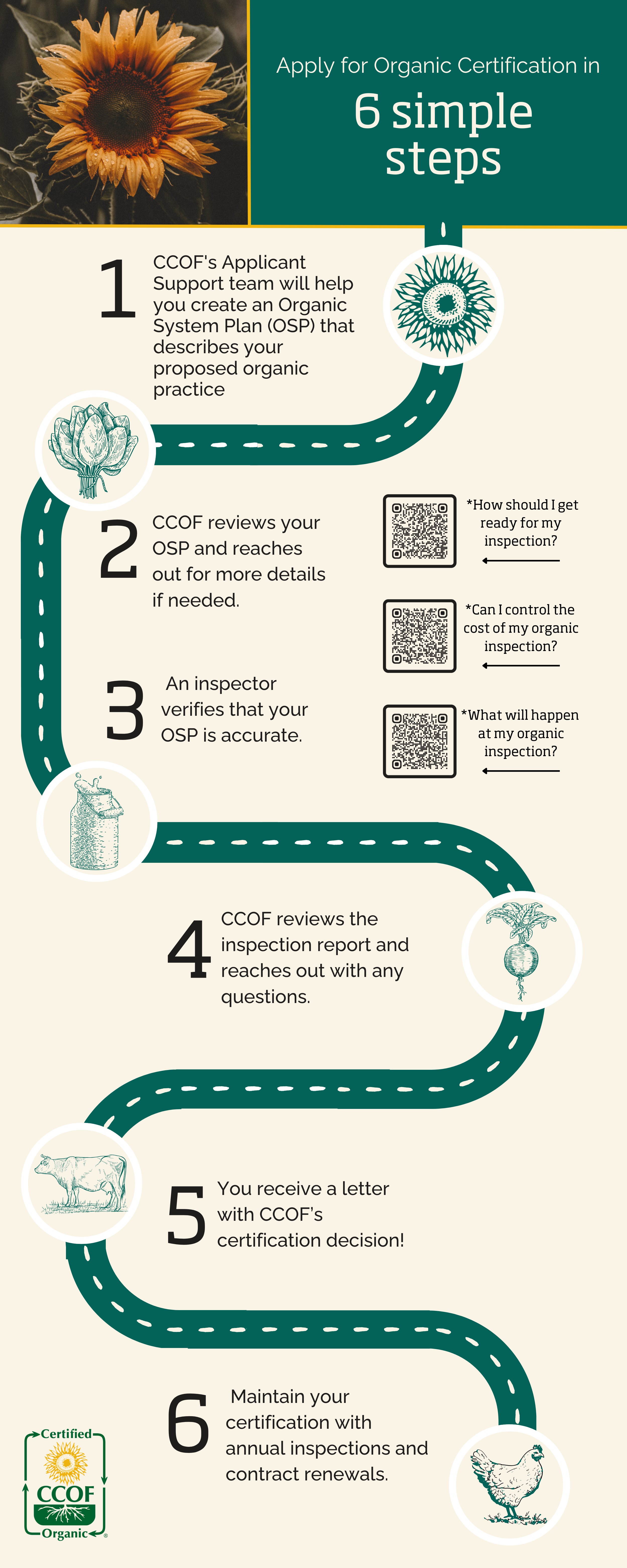
ROSP Addendum
CCOF Addendum to the Regenerative Organic Alliance ROSP for the Regenerative Organic Certified®…
With a deep dedication to service, we have highly trained staff to meet the specialized needs of all types and sizes of operations. When you have questions, we are ready to answer them with clear and concise answers.
As the largest certification agency in North America, CCOF has the capacity to work with diverse operation of all shapes and sizes. Our many years of experience have created strong systems to serve our clients and meet the organic regulations.
CCOF stands out in the field of certification through our many client services and benefits:
CCOF has online tools that make certification simpler. MyCCOF: Online Certification Tool provides easy access to monitor your certification and renewals, access key documents, and track the inspection and certification process. CCOF Certificate Portal enables you to track all of your CCOF-certified suppliers in one place.
CCOF serves clients throughout the United States, Canada, and Mexico. We certify the entire range of organic operations – large and small – including food processors, farms, livestock operations, retail stores, and personal care products.
With a deep dedication to service, we have highly trained staff to meet the specialized needs of all types and sizes of operations. When you have questions, we are ready to answer them with clear and concise answers.
All of the fees listed on this page are in USD. Operations in Mexico may consult www.sat.gob.mx to determine the current exchange rate.
Your total cost of certification in the first year will come from three main fees:
CCOF offers additional services, including international standards verification or certification for the EU, UK, Switzerland, Japan, Korea and Taiwan; certification of additional processing facilities; midyear additions of acreage or products; and completion of export documents. More information about additional fees can be found in the CCOF Certification Services Program Manual.
In a hurry? CCOF offers an Expedited Certification program and Rush Review of new products, labels, and materials for operations that are capable of compliance but are short on time.
Expedited Fees:
Rush Fees:
All of the fees listed on this page are in USD. Operations in Mexico may consult www.sat.gob.mx to determine the current exchange rate.
Your total cost of certification in the first year will come from three main fees:
